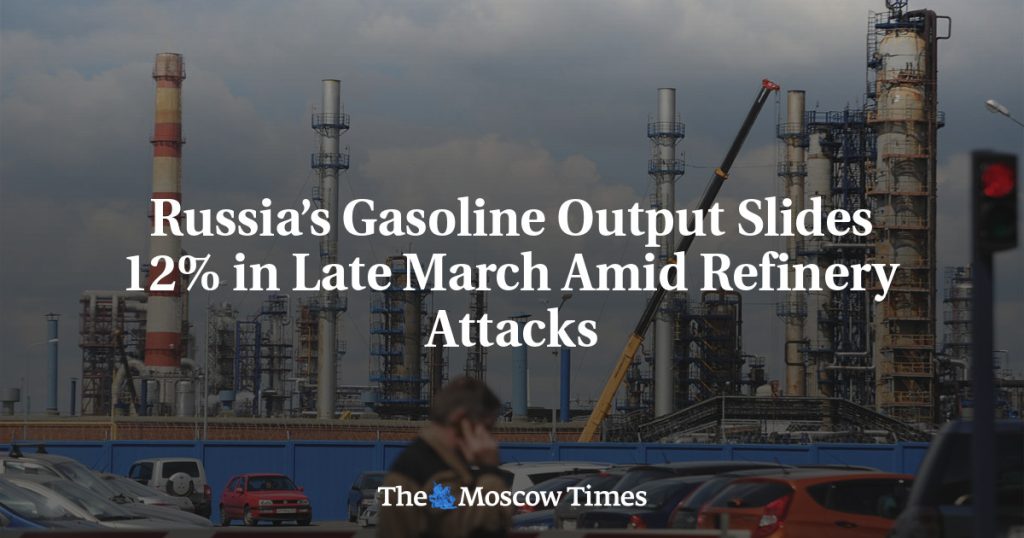The recent Ukrainian drone attacks on oil refineries in Russia have had a significant impact on the country’s gasoline production. According to official data reported by the Kommersant business daily, between March 25 and March 31, Russia produced 110,700 metric tons of gasoline per day, a 12% decrease compared to the average output in February. Diesel production was also down by 3.5% during this period, with a total of 231,000 metric tons produced per day. The attacks targeted at least eight Russian refineries in mid-March, leading to four of them partially or completely halting operations.
As a result of the drone strikes, around 14% of Russia’s primary oil refining capacity had been knocked out by the end of March, as estimated by Reuters. However, Russia’s Energy Minister Nikolai Shulginov mentioned that many of the damaged refineries are expected to resume operations in the coming months. Deputy Prime Minister Alexander Novak has instructed oil companies to increase gasoline and diesel production to mitigate any potential risks associated with the reduced refining capacity. Despite the initial decrease in gasoline prices after the attacks, Kommersant reported that the “psychological effect” of the strikes began to impact gasoline prices again during the following week.
In response to the decrease in gasoline production, Belarus has expressed interest in exporting gasoline to Russia to fill the gap. The country had halted supplies to Russia in recent years due to their unprofitability, but with the current situation, there is an opportunity for Belarus to re-enter the market and provide much-needed gasoline to Russia. This move could help stabilize gasoline prices in Russia and ensure that there is an adequate supply available to meet the demand. However, it remains to be seen how this potential partnership between Belarus and Russia will develop in the coming months.
The implications of the drone attacks on Russian refineries go beyond just the immediate impact on gasoline production. The decrease in refining capacity could lead to shortages and price increases for both gasoline and diesel in the country. This could have a ripple effect on the economy and the daily lives of Russian citizens who rely on these fuels for transportation and other essential needs. The Russian government is taking steps to address the situation by instructing oil companies to ramp up production, but the extent of the damage caused by the drone strikes will require ongoing efforts to restore normal operations.
Overall, the Ukrainian drone attacks have caused a disruption in Russia’s oil refining industry, leading to a decrease in gasoline production and concerns about potential shortages and price increases. The damaged refineries are expected to gradually come back online, but the impact of the attacks on the country’s energy sector will be felt for some time. Belarus has emerged as a potential partner to help fill the gap in gasoline supply, which could alleviate some of the pressure on Russia’s domestic market. It remains to be seen how the situation will unfold and what further measures will be taken to address the fallout from the drone strikes on Russian refineries.


